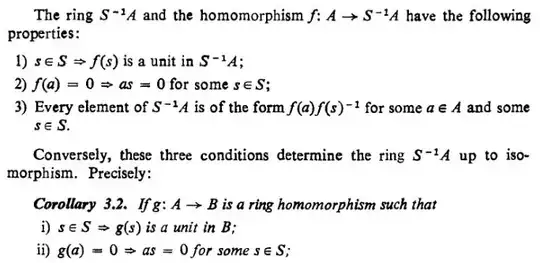I would describe this intuitively as follows. $A[x]_{x}$ is (very vaguely) the ring made from $A[x]$ forcing $x$ to be invertible while only adding the necessary relations to make a ring. $A[x,y]/(xy-1)$ fits this description as well, so one would expect them to be isomorphic. More concretely we have:
Define the map $\varphi : A[x,y]/(xy-1) \rightarrow A[x]_{x}$ by $x \rightarrow x$ and $y \rightarrow \frac{1}{x}$. It is well-defined because it sends $xy - 1$ to $0$. Now one can check it is a ring homomorphism. It is also clearly surjective. Now suppose that $f(x,y)$ is sent to $0$. Write
$$f(x,y) = \sum_{i,j} a_{ij} x^iy^j$$
Then $$\varphi(f) = \sum_{i,j} a_{ij}x^{i-j} = \sum_k\left(\sum_{k = i-j} a_{ij}\right)x^k \equiv 0$$
Thus we get for each fixed $k$ we get $\sum_{k = i-j} a_{ij} = 0$. Now use the relation $xy = 1$ to write $f$ as
$$f = \sum_{0 = i - j} a_{ij} + \sum_{i > j} a_{ij}x^{i-j} + \sum_{j > i} a_{ij}y^{j-i}$$
Finally, we may regroup and note that each sum is zero. For example, for $i > j$ we have
$$\sum_{i > j} a_{ij}x^{i-j} = \sum_{k > 0}\left(\sum_{k = i-j} a_{ij}\right)x^k$$
This proves $\varphi$ is injective and hence an isomorphism.

